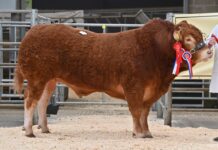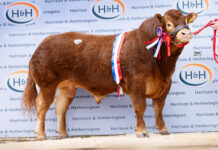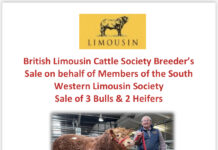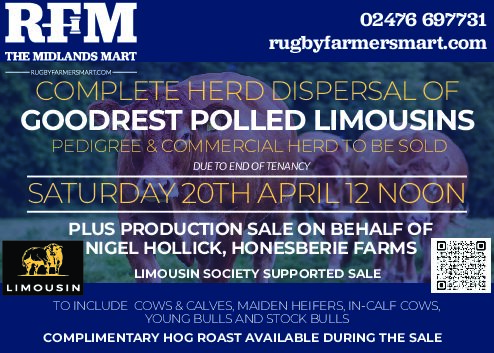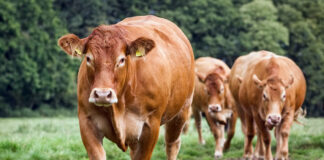LIMOUSIN BREEDERS LEADING THE WAY IN HERD HEALTH
36% of registered Limousin calves in CHeCS health schemes
Over 36% of all pedigree calves registered with the British Limousin Cattle Society (7168) are from herds within Cattle Health Certification Standards (CHeCS) approved schemes. That’s the headline figure from the sixth year of the BLCS’s Limousin Herd Health Initiative. Uptake increased in the 2010 year by a remarkable 25% both in terms of herds joining as well as numbers of calves registered born within herds participating in health schemes.
The British Limousin Herd Health Initiative, introduced in 2005, offers financial support to breeders who are investing in herd health assurance through being a member of a CHeCS approved scheme. Herds within a CHeCS scheme are able to make a claim each year based on the numbers of pedigree calves they have registered in the preceding twelve month period. In 2010 the cash-back incentive to breeders was increased to £4+VAT per calf and this will see the Society refund more than £28,000 on the year. Since 2005, the BLCS has paid back more than £85,000 to breeders as part of an initial investment commitment of £100,000 to herd health initiatives.
The Herd Health Initiative was established with the aim of providing the pedigree and commercial sector with cattle of an assured and known health status and as part of the Society’s commitment to breed improvement, good practice, and the provision of quality, profitable cattle. After five years of increased uptake, the figures have risen sharply again on the year and in line with the Society’s requirement, from the 1st of May 2011, that herds selling at nominated Premier Collective Sales must be members of a CHeCS approved Herd Health Scheme.
Commenting, British Limousin Cattle Society Development Manager Richard Saunders said: “In today’s industry the economic importance of herd health is recognized at every level from breeder through to processor and retailer. Six years of investment by both breeders and the Society has provided a meaningful bank of reliable and demonstrable herd health information around pedigree Limousin herds.”


